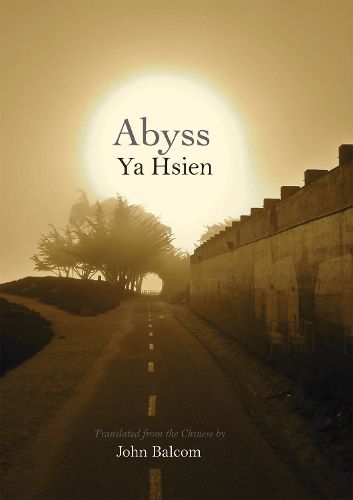Readings Newsletter
Become a Readings Member to make your shopping experience even easier.
Sign in or sign up for free!
You’re not far away from qualifying for FREE standard shipping within Australia
You’ve qualified for FREE standard shipping within Australia
The cart is loading…






A seminal work from the second wave of Chinese modernism.
So great is Ya Hsien’s influence on younger generations of Taiwanese and Chinese writers that he is sometimes referred to simply as The Poet. Yet he never wrote a second book after Abyss appeared in an expanded edition in 1971. This single book’s variety and virtuosity have made it a modern classic and the poet something of a legend. A new documentary, Ya Hsien: A Life that Sings, was nominated for Best Documentary at the 2015 Taipei Film Festival.
Under the Barber Pole
The barbers sing
Always it’s the same wheat-harvest festival Always an abundance of rye without ears Always it is reaped, reaped On the land of inspiration A small southern path leads to ears of grain And it’s also a kind of horticultural school A kind of beauty A kind of agricultural reform A kind of taste for something other than Greek sculpture
The barbers sing
Ya Hsien’s poetry runs the gamut from realism to surrealism, incorporating elements of folksong and modernist poetics, expressing a wide emotional range, and deftly capturing the critical spirit of the times. The sixty poems are divided into seven sections that present differing styles and themes, including Wartime,
Songs without Music , and Wild Water Chestnuts. The pen name Ya Hsien (his given name is Wang Ching-Lin) means mute string. Ya Hsien lives in Vancouver, British Columbia.
Award-winning translator John Balcom lives in Monterey, California.
$9.00 standard shipping within Australia
FREE standard shipping within Australia for orders over $100.00
Express & International shipping calculated at checkout
A seminal work from the second wave of Chinese modernism.
So great is Ya Hsien’s influence on younger generations of Taiwanese and Chinese writers that he is sometimes referred to simply as The Poet. Yet he never wrote a second book after Abyss appeared in an expanded edition in 1971. This single book’s variety and virtuosity have made it a modern classic and the poet something of a legend. A new documentary, Ya Hsien: A Life that Sings, was nominated for Best Documentary at the 2015 Taipei Film Festival.
Under the Barber Pole
The barbers sing
Always it’s the same wheat-harvest festival Always an abundance of rye without ears Always it is reaped, reaped On the land of inspiration A small southern path leads to ears of grain And it’s also a kind of horticultural school A kind of beauty A kind of agricultural reform A kind of taste for something other than Greek sculpture
The barbers sing
Ya Hsien’s poetry runs the gamut from realism to surrealism, incorporating elements of folksong and modernist poetics, expressing a wide emotional range, and deftly capturing the critical spirit of the times. The sixty poems are divided into seven sections that present differing styles and themes, including Wartime,
Songs without Music , and Wild Water Chestnuts. The pen name Ya Hsien (his given name is Wang Ching-Lin) means mute string. Ya Hsien lives in Vancouver, British Columbia.
Award-winning translator John Balcom lives in Monterey, California.